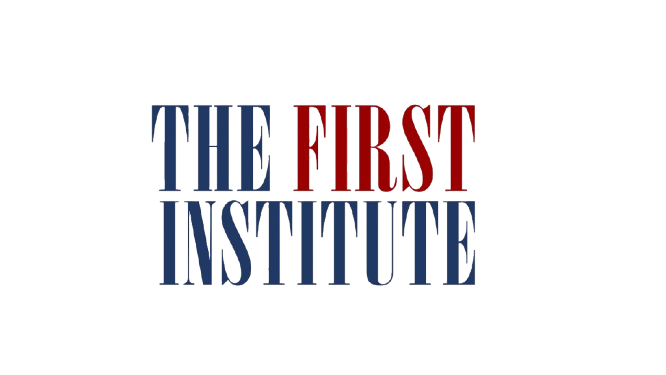Elevate Your Skills
In today’s fast-paced, globally competitive market, professionals who continually enhance their skills and adapt to new trends are those who thrive. As industries evolve and new technologies emerge, the need for world-class training programs has never been more critical. These programs don’t just improve technical skills; they also develop leadership qualities, foster critical thinking, and prepare professionals for new challenges. Investing in a top-notch training program is not just a career choice; it’s a pathway to professional excellence, job security, and future growth.
In this article, we’ll explore why world-class training programs are essential, what components make up a high-quality program, and how professionals can choose the best options for their goals. Finally, we’ll look at three frequently asked questions that many have about upskilling and professional training programs.
The Importance of Professional Training in a Competitive World
For professionals across all industries, the concept of “just good enough” is no longer enough. Companies and industries are moving at lightning speed, and staying relevant often requires a proactive approach to skill-building. World-class training programs offer more than just knowledge; they provide the expertise, resources, and networking opportunities to truly elevate your career.
Professional training is beneficial in three main ways:
- Keeping Skills Relevant and Up-to-Date
Rapid advancements, especially in technology, mean skills can quickly become outdated. Top training programs help professionals stay current with the latest developments, tools, and best practices in their field, making them invaluable assets to their organizations. - Opening Up New Career Opportunities
Gaining new skills opens doors to new roles and responsibilities. Employers look for candidates who are equipped with the latest knowledge and an eagerness to grow. A certificate or qualification from a reputable training program can make a resume stand out in a competitive job market. - Building Confidence and Professional Credibility
Confidence is crucial for career growth, and training helps individuals build that confidence. The hands-on experience and peer feedback that world-class programs provide create a foundation of practical skills and theoretical knowledge that improves decision-making and job performance.
Components of World-Class Training Programs
So, what exactly makes a training program world-class? Several key components differentiate top-tier programs from average ones.
1. Experienced Instructors and Thought Leaders
World-class programs attract instructors who are experts in their fields—those who have proven experience, deep knowledge, and current industry insights. They aren’t just teachers; they’re mentors who bring real-world examples and practical knowledge into the learning experience. Many programs feature guest lectures or workshops with thought leaders who can offer unique insights into industry trends.
2. Hands-On, Practical Experience
Knowledge is valuable, but it’s not enough without practical experience. World-class programs often include case studies, simulations, projects, and live labs that mirror actual job scenarios. For example, a program in digital marketing might include exercises in creating a marketing strategy or running a real-world ad campaign, providing students with skills they can apply immediately.
3. Updated and Relevant Curriculum
The best training programs don’t stick to a static curriculum. They continually update their materials to reflect the latest trends, technologies, and methods in their respective fields. A program that includes outdated information or doesn’t address current industry challenges is unlikely to benefit students in the long run.
4. Networking and Collaboration Opportunities
Networking is an invaluable part of professional growth. World-class training programs offer plenty of opportunities to connect with other professionals, industry leaders, and alumni. Group projects, workshops, and mentorship opportunities allow students to build relationships that can lead to new job opportunities, partnerships, or business ventures.
5. Flexibility and Accessibility
With busy schedules and varying time zones, flexibility is critical for many professionals. Many top programs offer both in-person and online options, with flexible schedules that accommodate working professionals. Self-paced learning options and recorded lectures ensure that students can continue learning without having to compromise their work responsibilities.
Selecting the Right Training Program for Your Goals
With so many training programs available, how does a professional choose the best one? Here are three crucial steps:
Step 1: Identify Your Goals
Start by identifying your career goals and skill gaps. Are you looking to advance in your current role or switch to a different industry? Knowing exactly what you want to achieve helps narrow down programs to those that align with your objectives.
Step 2: Research the Program’s Reputation
Not all programs are created equal. Investigate the program’s reputation by reading reviews, looking at alumni success stories, and checking the credentials of the instructors. Accreditation from reputable organizations can also be an indicator of quality.
Step 3: Evaluate the Program’s Offerings and Resources
Look for programs that offer the specific skills and training you need. Check the curriculum, and make sure it covers the areas you’re interested in. Consider additional resources like career services, mentorship opportunities, and alumni networks, which can significantly enhance your learning experience.
Types of High-Impact Training Programs
World-class training programs can range from technical skill-building to leadership development and beyond. Here are some types that have proven to be transformational for professionals.
1. Executive Leadership Programs
Designed for high-level professionals and those aspiring to executive roles, these programs focus on leadership, strategic thinking, and decision-making. Participants gain insights into organizational management, communication strategies, and how to drive company growth.
2. Technical Skill Development Programs
Whether you’re a software developer, data analyst, or engineer, technical skills are essential to career growth. Programs in fields like data science, cybersecurity, and coding offer hands-on learning with real-world projects to help professionals master complex skills quickly.
3. Soft Skills and Communication Programs
As companies become more collaborative and global, soft skills like communication, teamwork, and adaptability are increasingly essential. Soft skills programs help professionals enhance their emotional intelligence, negotiation skills, and conflict resolution abilities—critical for effective teamwork and leadership.
4. Industry-Specific Certification Programs
Certain industries require specialized knowledge and certifications. Fields such as finance, healthcare, and project management often have certification programs that are recognized and valued by employers. Earning these certifications not only improves your skills but also boosts your credibility.
The Impact of Elevating Your Skills on Career Growth
Investing in professional training can have a profound impact on career growth. Here are some ways skill-building translates into long-term benefits:
- Increased Earning Potential: Professionals who consistently update their skills tend to command higher salaries, as they bring more value to their organizations.
- Job Security and Adaptability: Keeping skills relevant makes professionals less vulnerable to layoffs and job shifts.
- Career Satisfaction: Constantly learning and growing leads to greater job satisfaction, as professionals feel more capable and confident in their roles.
Frequently Asked Questions
Q1: How can I balance a training program with my full-time job?
Many world-class programs offer flexible schedules or online options, allowing you to learn at your own pace. Look for programs that provide evening or weekend classes, self-paced modules, or recorded lectures. Prioritize time management, and consider setting specific hours each week for training.
Q2: Are online training programs as valuable as in-person ones?
Yes, many online programs are equally valuable, especially when they are offered by reputable institutions. Online programs often provide the same curriculum as in-person programs, along with resources like discussion forums, virtual networking events, and one-on-one mentorship. Just ensure that the online program you choose has a strong reputation and positive reviews.
Q3: What is the ROI of investing in a world-class training program?
Investing in training can provide a high return on investment through increased earning potential, job security, and career growth. Additionally, many employers value certifications and specialized training when promoting or hiring. Before choosing a program, consider how the new skills align with your career goals, as the most significant returns come from programs that directly impact your career trajectory.
Conclusion
World-class training programs for professionals offer an incredible opportunity to stay competitive, achieve career goals, and improve job satisfaction. With access to experienced mentors, a robust curriculum, and hands-on experience, these programs elevate your skills and prepare you to take on higher responsibilities. Whether you’re aiming to enhance your leadership abilities or master technical skills, investing in quality training is an investment in your future success.








Add a Comment